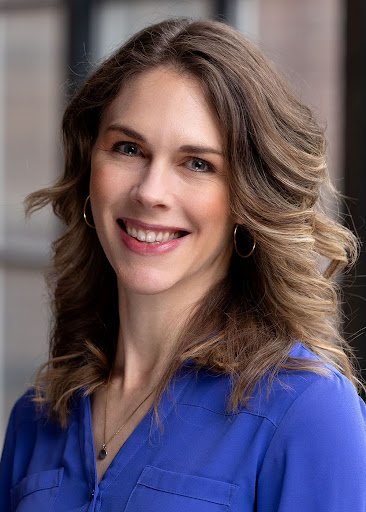2024-2025 Fesler Lampert Chair in Aging Studies

Like many gerontologists, I am an interdisciplinary scholar. My research on elder financial exploitation is influenced by diverse fields such as psychology, cognitive science, public policy, criminology, social work, and marketing science. Borrowing theories and methodologies from these perspectives, I seek to investigate the causes and consequences of elder financial exploitation.
Financial security is an important component of healthy aging, but financial exploitation, including scams and fraud, places the financial and emotional wellbeing of millions of older Americans in jeopardy. In my research, I am committed to developing and testing prevention and intervention programs that minimize the harms of financial exploitation, such as advance financial care planning, fraud awareness and education campaigns, and interventions that protect older adults’ accounts from revictimization. To advance this work, I engage with state and federal agencies including the Minnesota Department of Commerce, Minnesota Department of Human Services, the US Postal Inspection Service, and the Federal Trade Commission.
Prior to joining the faculty at the UMN School of Social Work, I was trained at the University of Southern California Davis School of Gerontology, focusing on elder abuse and neglect, and then completed a postdoc at Stanford University in the Psychology Department and at the Stanford Center on Longevity.
What led you to apply to the Fesler-Lampert Chair?
In addition to my scholarship, I care deeply about increasing access to gerontology education at the University of Minnesota. I applied for the Fesler-Lampert Chair in order to develop an online curriculum that provides access to training in aging studies and introduces more students to the exciting field of gerontology.
What are some of the projects you plan to work on while F-L Chair? What do you hope to achieve?
I held a listening session with our student association, the Aging Studies Interdisciplinary Group– “ASIG”, and learned that many students are interested in aging but their ability to complete the Gerontology Minor is limited by a few factors. Students shared concerns about the considerable course requirements for their primary majors, the lack of gerontology course offerings, and busy work and internship schedules. Therefore, my goal as the 2024/2025 Fesler-Lampert Chair and as CHAI’s Associate Director of Education is to lower the barrier to entry in gerontology by redeveloping “Multidisciplinary Perspectives in Aging” as an asynchronous online class. As with the in-person course, the curriculum will focus on the key theoretical foundations in gerontology, lifecourse perspectives and methodologies, and current issues and trends in aging.
Asynchronous courses have become increasingly popular because they allow students flexibility to access course material at their own pace and around their existing work, class, and other commitments. An intentionally designed asynchronous class can introduce the field of gerontology to a much wider audience of graduate students across campus who are looking for a 2-credit course that they can complete on their own time.
To develop this course, I will participate in instruction on the best practices in asynchronous course design. Using Canvas, I will record bite-sized lectures and create weekly reading, viewing, and discussion assignments for students to engage with as their schedules permit. The redesigned course will be packaged as “off the shelf” so that any faculty member can be the instructor with minimal additional course prep.
What are some of your professional and academic goals after the Chair ends?
After the Fesler-Lampert Chair ends, I will continue working to raise the profile of gerontology research and education at the University of Minnesota through teaching, research, and advocacy. In my own area of scholarship, I am motivated to develop scalable, cost-effective interventions that protect older adults from exploitation while preserving their right to self-determination and financial autonomy.
